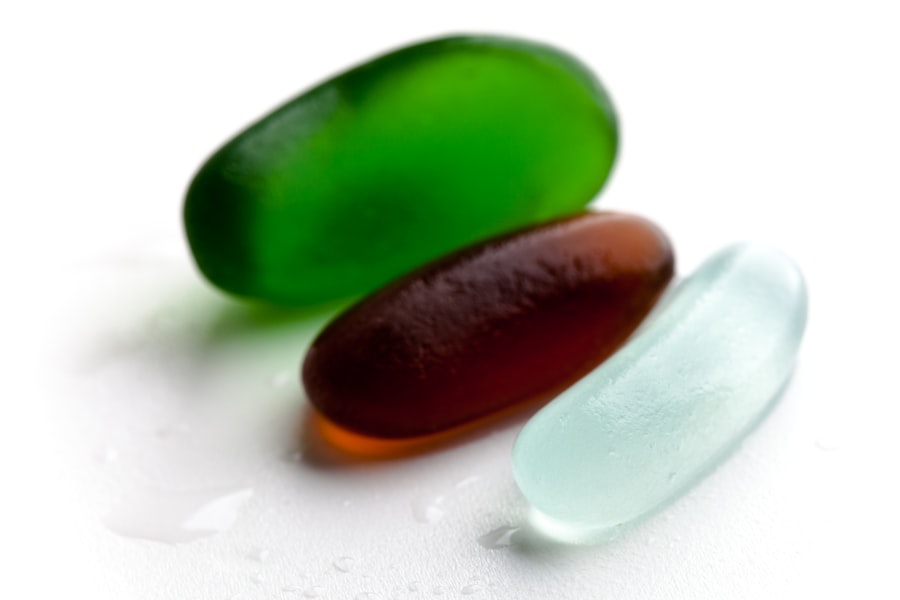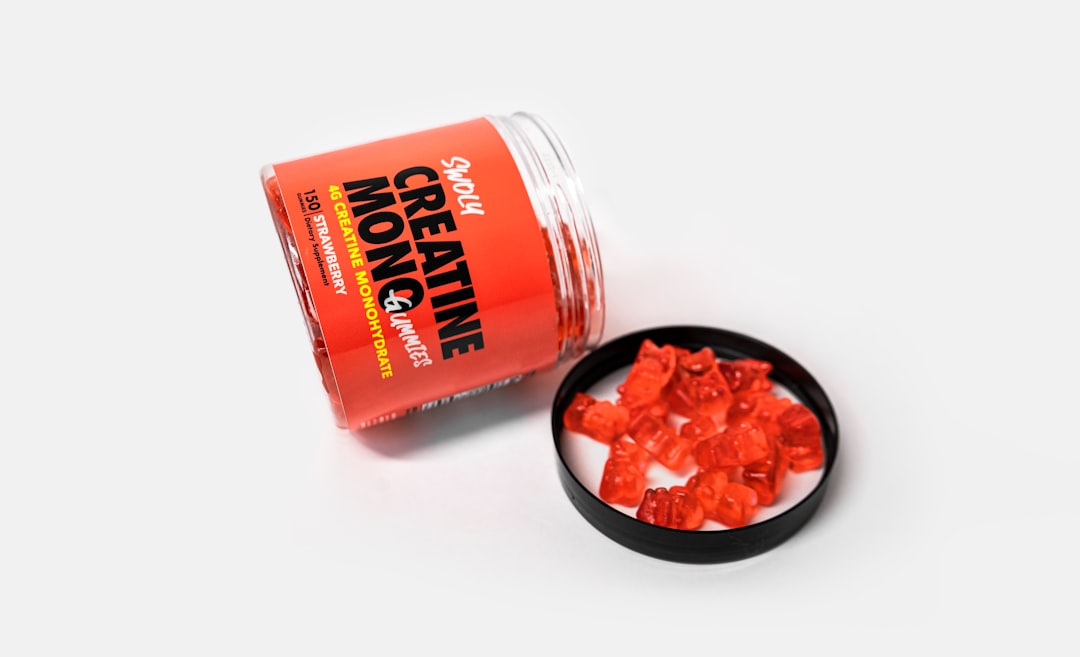Iron supplements have become increasingly popular as a means to combat iron deficiency, a condition that affects millions of people worldwide. You may find yourself considering these supplements if you experience fatigue, weakness, or other symptoms associated with low iron levels. Iron is a crucial mineral that plays a vital role in various bodily functions, particularly in the formation of hemoglobin, which carries oxygen in your blood.
However, while iron supplements can be beneficial for those who need them, it is essential to understand their implications fully. This article will explore the role of iron in your body, the risks associated with iron overload, and the potential impact on liver health. As you delve deeper into the world of iron supplementation, you may discover that not all iron supplements are created equal.
They come in various forms, including ferrous sulfate, ferrous gluconate, and ferrous fumarate, each with its own absorption rates and side effects. Understanding these differences can help you make informed decisions about which supplement might be best for you. Additionally, it is crucial to recognize that while iron is necessary for your health, excessive intake can lead to serious complications, particularly concerning liver function.
Key Takeaways
- Iron supplements are commonly used to treat iron deficiency anemia and other conditions, but they can also lead to liver damage if not used properly.
- Iron plays a crucial role in the body, helping to transport oxygen and produce energy, but too much iron can be harmful and lead to iron overload.
- Iron overload can cause liver damage, as the liver is responsible for regulating iron levels in the body and excessive iron can build up in the liver.
- Symptoms of liver damage from iron supplements may include fatigue, abdominal pain, jaundice, and elevated liver enzymes.
- Prevention of liver damage from iron supplements involves proper diagnosis, monitoring, and management of iron levels, as well as considering alternative iron sources and supplements.
The Role of Iron in the Body
Iron plays a multifaceted role in your body, serving as a fundamental component of hemoglobin and myoglobin. Hemoglobin is responsible for transporting oxygen from your lungs to the rest of your body, while myoglobin helps store oxygen in your muscles. Without adequate iron levels, your body struggles to produce enough hemoglobin, leading to anemia and its associated symptoms such as fatigue and weakness.
You may find that maintaining optimal iron levels is essential for your overall energy and vitality. Beyond its role in oxygen transport, iron is also involved in various enzymatic processes that are crucial for metabolism and cellular function. It contributes to the synthesis of neurotransmitters and supports immune function, making it vital for your overall health.
If you are an athlete or someone who engages in regular physical activity, you may be particularly aware of the importance of iron in maintaining endurance and performance. Therefore, ensuring that you have sufficient iron levels is not just about preventing deficiency; it’s about optimizing your body’s performance.
The Risks of Iron Overload

While iron is essential for your health, it is equally important to recognize the risks associated with excessive iron intake. Iron overload can occur when you consume too much iron through supplements or when your body absorbs more iron than it needs. This condition, known as hemochromatosis, can lead to serious health complications if left untreated.
You may not realize that your body has no natural way to excrete excess iron, which means that it can accumulate over time and cause damage to various organs. The symptoms of iron overload can be subtle at first but may progress to more severe issues if not addressed. You might experience fatigue, joint pain, or abdominal discomfort as early warning signs.
Over time, excessive iron can lead to more severe complications such as liver disease, heart problems, and diabetes. Therefore, it is crucial to monitor your iron intake and consult with a healthcare professional if you suspect you are consuming too much.
Liver Function and Iron Metabolism
| Metrics | Normal Range |
|---|---|
| ALT (Alanine Aminotransferase) | 7-56 units per liter |
| AST (Aspartate Aminotransferase) | 10-40 units per liter |
| ALP (Alkaline Phosphatase) | 44-147 units per liter |
| Total Bilirubin | 0.3-1.2 milligrams per deciliter |
| Ferritin | 30-400 nanograms per milliliter |
The liver plays a central role in iron metabolism and storage within your body. It regulates the amount of iron that enters your bloodstream and stores excess iron for future use. When you consume iron through food or supplements, your liver helps manage this intake by releasing or storing iron as needed.
This delicate balance is essential for maintaining optimal health and preventing both deficiency and overload. When your liver functions properly, it ensures that your body has access to the right amount of iron without allowing excess accumulation. However, if you take iron supplements without medical supervision or consume them in excessive amounts, you risk overwhelming your liver’s capacity to manage this mineral effectively.
This can lead to a cascade of health issues that may compromise not only liver function but also overall well-being.
Potential Liver Damage from Iron Supplements
Excessive intake of iron supplements can lead to significant liver damage over time. When too much iron accumulates in the liver, it can cause oxidative stress and inflammation, leading to conditions such as fatty liver disease or even cirrhosis in severe cases. You may not notice any immediate effects from taking high doses of iron supplements; however, the long-term consequences can be dire.
The liver’s ability to process and store iron is limited, and once it becomes overwhelmed, the damage can escalate quickly. If you are taking iron supplements without proper guidance or monitoring, you may unknowingly put yourself at risk for serious liver complications. Understanding the potential dangers associated with excessive iron intake is crucial for anyone considering supplementation.
Symptoms of Liver Damage

Recognizing the symptoms of liver damage is essential for early intervention and treatment. You may experience a range of symptoms that could indicate liver distress due to excessive iron intake. Common signs include fatigue, jaundice (yellowing of the skin and eyes), abdominal pain or swelling, and dark urine.
If you notice any of these symptoms after starting an iron supplement regimen, it is vital to seek medical attention promptly. In addition to these physical symptoms, you might also experience changes in appetite or unexplained weight loss. These signs can be subtle but should not be ignored.
If you suspect that your liver may be affected by high levels of iron from supplements, consulting with a healthcare professional can help determine the best course of action.
Diagnosing Liver Damage from Iron Supplements
Diagnosing liver damage related to iron supplementation typically involves a combination of medical history assessment, physical examination, and laboratory tests.
Blood tests can measure liver enzymes and assess overall liver function, providing valuable insights into your health status.
In some cases, imaging studies such as ultrasounds or MRIs may be necessary to evaluate the liver’s condition further. These tests can help identify any structural changes or damage caused by excess iron accumulation. If you have been taking iron supplements regularly and are experiencing concerning symptoms or abnormal test results, it is crucial to follow up with your healthcare provider for a comprehensive evaluation.
Treatment and Management of Iron-Related Liver Damage
If diagnosed with liver damage due to excessive iron intake from supplements, treatment options will depend on the severity of the condition. In many cases, the first step involves discontinuing the use of iron supplements and making dietary adjustments to reduce overall iron intake. Your healthcare provider may recommend a low-iron diet or suggest alternative sources of nutrition that do not contribute to excess iron levels.
In more severe cases of liver damage or hemochromatosis, therapeutic phlebotomy may be necessary. This procedure involves regularly removing blood from your body to decrease overall iron levels. Your healthcare provider will work with you to develop a personalized treatment plan that addresses both your liver health and any underlying issues related to iron metabolism.
Prevention of Liver Damage from Iron Supplements
Preventing liver damage related to iron supplementation begins with understanding your individual needs for this essential mineral.
This proactive approach can help avoid potential complications down the line.
Additionally, being mindful of dietary sources of iron is crucial for maintaining balanced levels in your body. Incorporating foods rich in vitamin C can enhance iron absorption from plant-based sources while being cautious about consuming too much heme iron from animal products can help prevent overload. By taking these steps and staying informed about your health needs, you can significantly reduce the risk of liver damage associated with excessive iron intake.
Alternative Iron Sources and Supplements
If you find yourself needing additional iron but are concerned about the risks associated with traditional supplements, there are alternative sources worth considering. Plant-based sources such as lentils, beans, spinach, and fortified cereals provide non-heme iron that is generally absorbed at lower rates than heme iron found in animal products. Pairing these foods with vitamin C-rich options like citrus fruits or bell peppers can enhance absorption without overwhelming your system.
Additionally, there are specialized formulations available that offer lower doses of iron or use different forms that may be better tolerated by some individuals. Liquid iron supplements or those combined with other nutrients may provide a gentler approach for those who experience gastrointestinal side effects from traditional tablets. Exploring these alternatives can help you meet your nutritional needs while minimizing potential risks.
Conclusion and Recommendations
In conclusion, while iron supplements can be beneficial for those with deficiencies or increased needs, it is essential to approach their use with caution and awareness of potential risks. Understanding the role of iron in your body and recognizing the signs of overload can empower you to make informed decisions about supplementation. Regular monitoring of your iron levels through blood tests and consultations with healthcare professionals will help ensure that you maintain optimal health without compromising liver function.
As you navigate the world of nutrition and supplementation, remember that balance is key. Prioritize whole food sources of nutrients whenever possible and consider alternative methods for meeting your dietary needs without resorting to high-dose supplements unless absolutely necessary. By taking these steps and remaining vigilant about your health, you can enjoy the benefits of adequate iron levels while minimizing the risks associated with excess intake.
Iron supplements are commonly used to treat or prevent iron deficiency anemia, but there is growing concern about their potential impact on liver health. Excessive iron intake can lead to iron overload, which may cause liver damage over time. For those interested in learning more about the effects of iron on the liver and overall health, a related article on this topic can be found on Explore Senior Health. This resource provides valuable insights into how iron supplements can affect the body, particularly in older adults, and offers guidance on safe supplementation practices.
💰 The Secret History of the Dollar: How Oil Replaced Gold (The Petrodollar Mystery)
FAQs
What are iron supplements?
Iron supplements are oral medications that contain iron, a mineral essential for the body to produce red blood cells and transport oxygen throughout the body.
Can iron supplements damage your liver?
Yes, excessive intake of iron supplements can lead to iron overload in the body, which can cause damage to the liver.
How does iron overload affect the liver?
Iron overload can lead to a condition called iron-induced liver injury, which can cause inflammation, fibrosis, and even cirrhosis of the liver.
What are the symptoms of iron-induced liver injury?
Symptoms of iron-induced liver injury may include fatigue, weakness, abdominal pain, jaundice, and elevated liver enzymes.
Who is at risk for iron-induced liver injury?
Individuals at risk for iron-induced liver injury include those with hereditary hemochromatosis, thalassemia, or other conditions that require frequent blood transfusions.
How can iron-induced liver injury be prevented?
To prevent iron-induced liver injury, it is important to only take iron supplements as prescribed by a healthcare professional and to regularly monitor iron levels in the body.
What should I do if I suspect iron-induced liver injury?
If you suspect iron-induced liver injury, it is important to seek medical attention immediately. A healthcare professional can conduct tests to assess liver function and determine the appropriate course of action.
